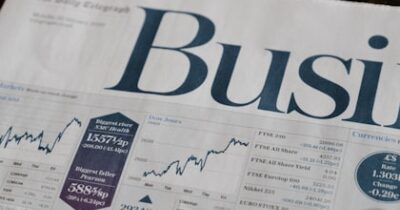Market Reactions: Selling Spreads, Uncertainty
The U.S. credit rating downgrade by Moody’s Investors Service has sent shockwaves through global markets, triggering a sell-off in stocks and bonds. The downgrade, which lowered the U.S. credit rating to Baa1 from Baa3, signals heightened concerns about the U.S. government’s ability to manage debt, potentially complicating negotiations over a proposed tax plan. Investors are now scrutinizing the risks of prolonged economic uncertainty, with markets reacting to the downgrade as a catalyst for volatility.
Credit Rating Downgrade: A Major Shock for Markets
Moody’s downgrade comes amid growing concerns about the U.S. government’s debt levels, which have surged due to rising interest rates and a slowing economy. The downgrade, which is the first of its kind in over a decade, has raised fears of a potential default or a prolonged credit crisis. This has led to a flight to safety, with investors selling equities and bonds to avoid risk. The downgrade also complicates discussions on the tax plan, as lawmakers face pressure to balance fiscal responsibility with economic growth.
Tax Plan Negotiations: A Complex Landscape
The U.S. Senate’s tax plan, which includes measures to reduce the federal deficit, is now under intense scrutiny. With the credit rating downgrade, lawmakers are under pressure to address concerns about the plan’s fiscal sustainability. However, the plan’s success hinges on bipartisan support and a delicate balance between reducing taxes and maintaining economic growth. The downgrade has amplified fears that the plan may not be able to meet its fiscal targets, further complicating negotiations.
Key Takeaways: The Ripple Effect of Credit Risk
1. Market Volatility: The downgrade has triggered a sell-off in equities and bonds, with investors wary of prolonged economic uncertainty.
2. Fiscal Uncertainty: The U.S. government’s debt crisis has intensified, raising questions about the feasibility of the tax plan and its long-term impact on the economy.
3. Political Pressure: Legislators face mounting pressure to negotiate a tax plan that addresses fiscal concerns while avoiding further economic strain.
4. Global Impact: The downgrade has ripple effects beyond the U.S., with investors globally adjusting their portfolios in response to the risk of a credit crisis.
Conclusion: A Fragile Balance
The U.S. credit rating downgrade underscores the delicate balance between fiscal responsibility and economic stability. As markets grapple with uncertainty, investors must navigate a complex landscape of political, economic, and financial challenges. The outcome of tax plan negotiations and the U.S. government’s response to the downgrade will likely shape the next chapter of global financial markets.
Source: New York Times Business





3 thoughts on “U.S. Credit Rating Downgrade Sparks Market Volatility as Tax Plan Negotiations Remain Uncertain”